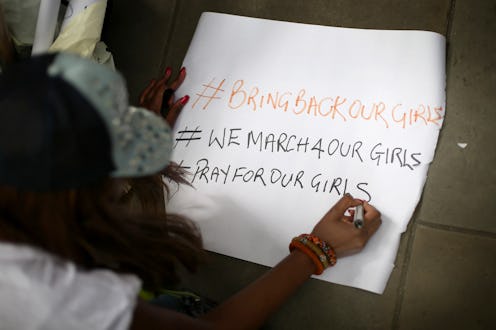News
Will U.S. Troops Bring Back Our Girls?
Will someone finally manage to #BringBackOurGirls? The U.S. deployed 80 troops to help find the Nigerian schoolgirls this week, sending them to the neighboring country of Chad to participate in the search. The troops will aid in the attempt to rescue the more than 200 girls who were abducted by Islamist militant group Boko Haram. According to a statement from President Barack Obama, the troops will primarily aid in spying.
These personnel will support the operation of intelligence, surveillance, and reconnaissance aircraft for missions over northern Nigeria and the surrounding area. The force will remain in Chad until its support in resolving the kidnapping situation is no longer required.
The young women were abducted from their school in the town of Chibok, Nigeria on April 14. They've been missing ever since, and only a small percentage have managed to escape. Boko Haram has taken responsibility for the kidnapping. They've previously terrorized other schools in northern Nigeria, and say they believe Western-style education is sinful.
Earlier this month, the U.S. sent help to the Nigerian capital, Abuja, in the form of an advisory team. That action was later criticized as too little, too late. In a press briefing on May 6, White House Press Secretary Jay Carney said the administration wasn't considering sending troops, and emphasized that it was Nigeria's responsibility to protect its citizens.
...We’re not considering at this point military resources. We would urge Nigeria to ensure that any operation to free the girls would protect civilians and human rights.
Fortunately, the U.S. seems to have changed its tune after outrage continued to grow over the missing young women, voiced even by First Lady Michelle Obama, who recently posted a photo of herself holding up a sign reading #BringBackOurGirls on Twitter.
But finding the schoolgirls will be difficult. A spokesman for the Department of Defense, Rear. Adm. John Kirby, told The Washington Post that it would be like finding "a needle in a jungle."
We’re talking about an area roughly the size of West Virginia, and it’s dense forest jungle.
